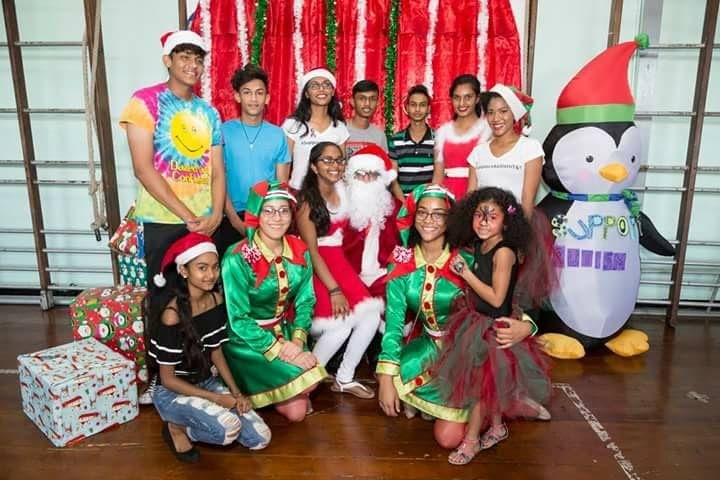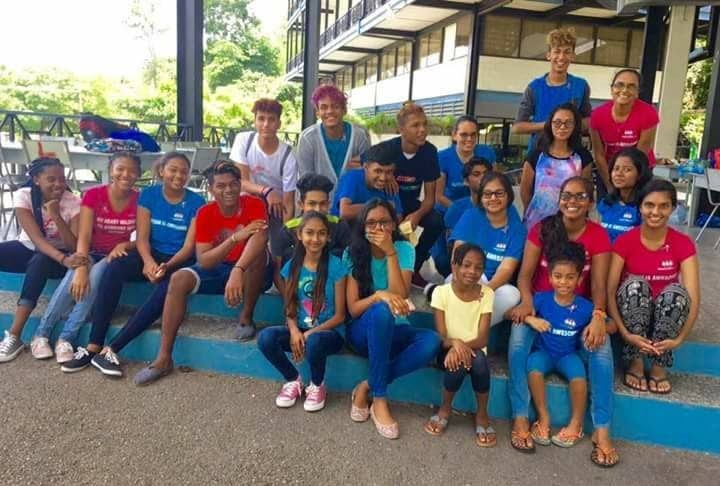Becoming an autism activist

DR RADICA MAHASE
RECENTLY, a mother of a ten-years-old girl with autism said that her daughter got a meltdown while travelling in a maxi taxi due to the noisy, cramped space. That wasn’t her problem though, as she was able to calm her child down and soon they arrived at their destination.
It was the reaction of the other passengers that really got to her; one proceeded to tell her that “you need to give her a good slap and she would stop playing harden.”
Another told her that she has to pray and pray for the child because “that child have de devil in she.”
Of course the mother was very upset and she proceeded to loudly tell everyone in the maxi taxi, that her child is her business and nobody should be telling her how to take care of her child.
The interesting thing is she spent the remaining time in the maxi taxi explaining autism to anyone who was listening and by the time she got off the maxi taxi some of the passengers were more understanding and even sympathetic. In that moment of having to defend her child she had become an autism activist.
Generally, an activist is someone who campaigns for social change in whatever way. An autism activist then is someone who actively seeks to create a better society for anyone with autism, at whatever level.
When we think of social activists, the usual image that comes to mind is people holding placards, large organised protests, and so on.
However, autism activists are normal people, those who simply love someone with autism and have no choice but to stand up for that individual.
They are the parents, brothers and sisters, relatives, teachers and neighbours who stand up for someone with autism on a daily basis. They are the ones who have to continually explain to others that their child is not “harden” or “stupid”, that their child has autism. They are the ones who seek to create positive change for those who cannot do it themselves.
In the case of autism in TT, it is the small gestures that make the big difference in our society.
In the absence of any national movement promoting autism acceptance, the parents and siblings are the ones who have to take up the fight.

While most organisations campaign in April (Autism Awareness Month) the true autism activists campaign throughout the year. They really have no choice because if they don’t stand up and fight on behalf of their special ones then this group would become even more marginalised than it already is. These types of everyday activist do not have political agenda; they simply want to take care of their child with autism, to make his/her life less stressful and simply happier.
But surely we can take this one step further and we can train individuals to become autism activists from very early in life? Maybe we can do this if we start at the preschool level, for example. If every child in a preschool is taught from as early as age three years that there are other children who are “different” and that’s okay; if they are told about those with special needs; most importantly, if they are allowed to interact with those with autism and other special needs then surely we can influence their perception of others and help them to become empathetic individuals from a very young age?
Another idea is to encourage teenagers to volunteer with social organisations; to interact with those with special needs so that they can understand and appreciate them; to really truly help them to understand differences of all kinds so that they grow up to be adults who can continue to influence change in society. If our teenagers realise that it’s cool to help others and that they can make a difference even as teenagers then maybe they would become activists in their own way.
If every autism activist can change the perception of even one individual, like the mother in the maxi taxi, then there is hope for change in attitudes towards those with autism in TT. While ultimately, provisions for those with autism must come from the top, at the level of policy-making, changing an entire level of consciousness can actually start at the level of the average man, woman and children. In the words of Rigoberta Menchu, the 1992 winner of Nobel Prize for Peace, “The people are the only ones capable of transforming society.”


Comments
"Becoming an autism activist"